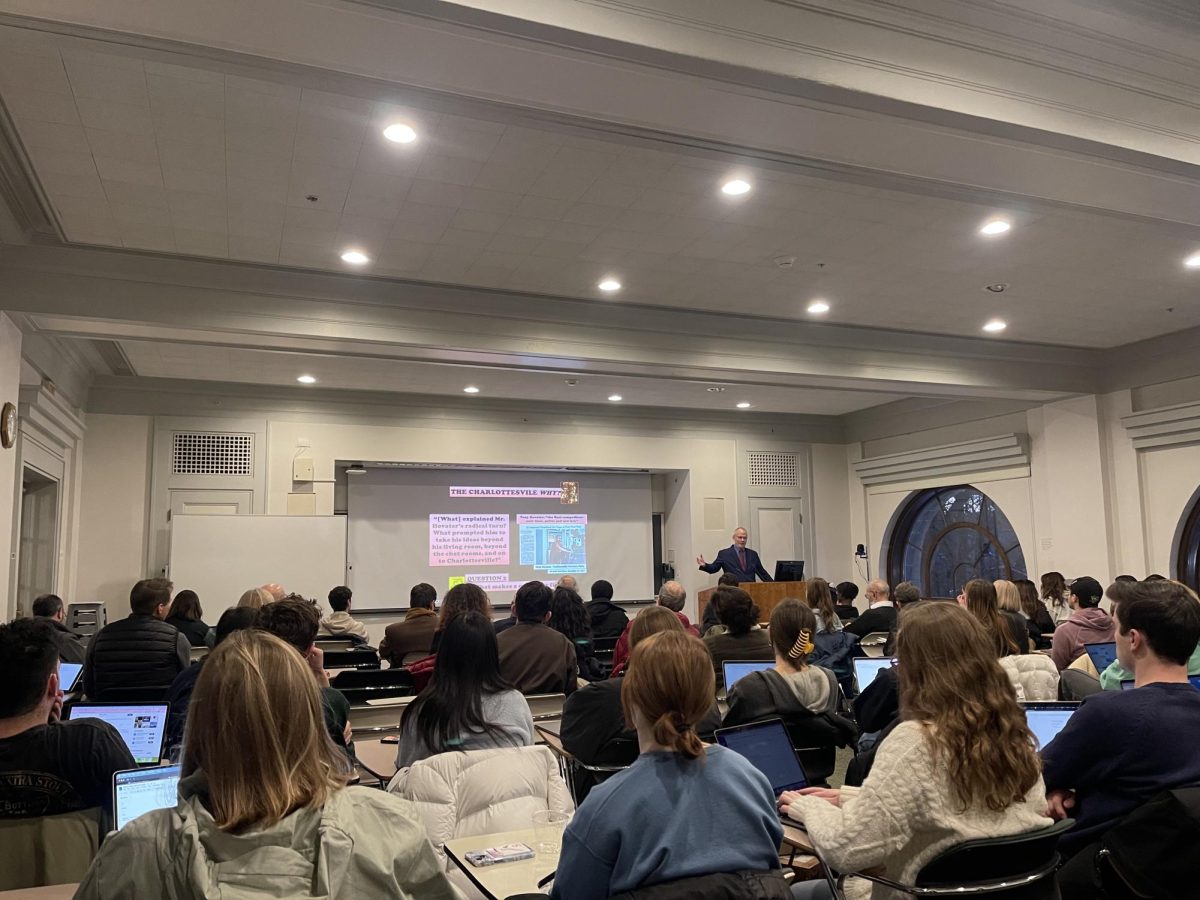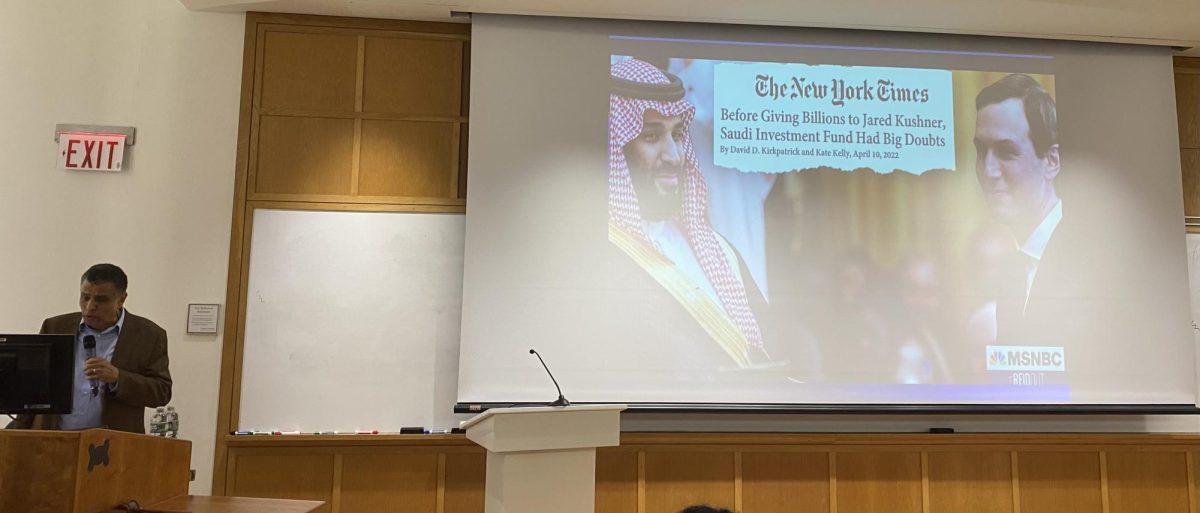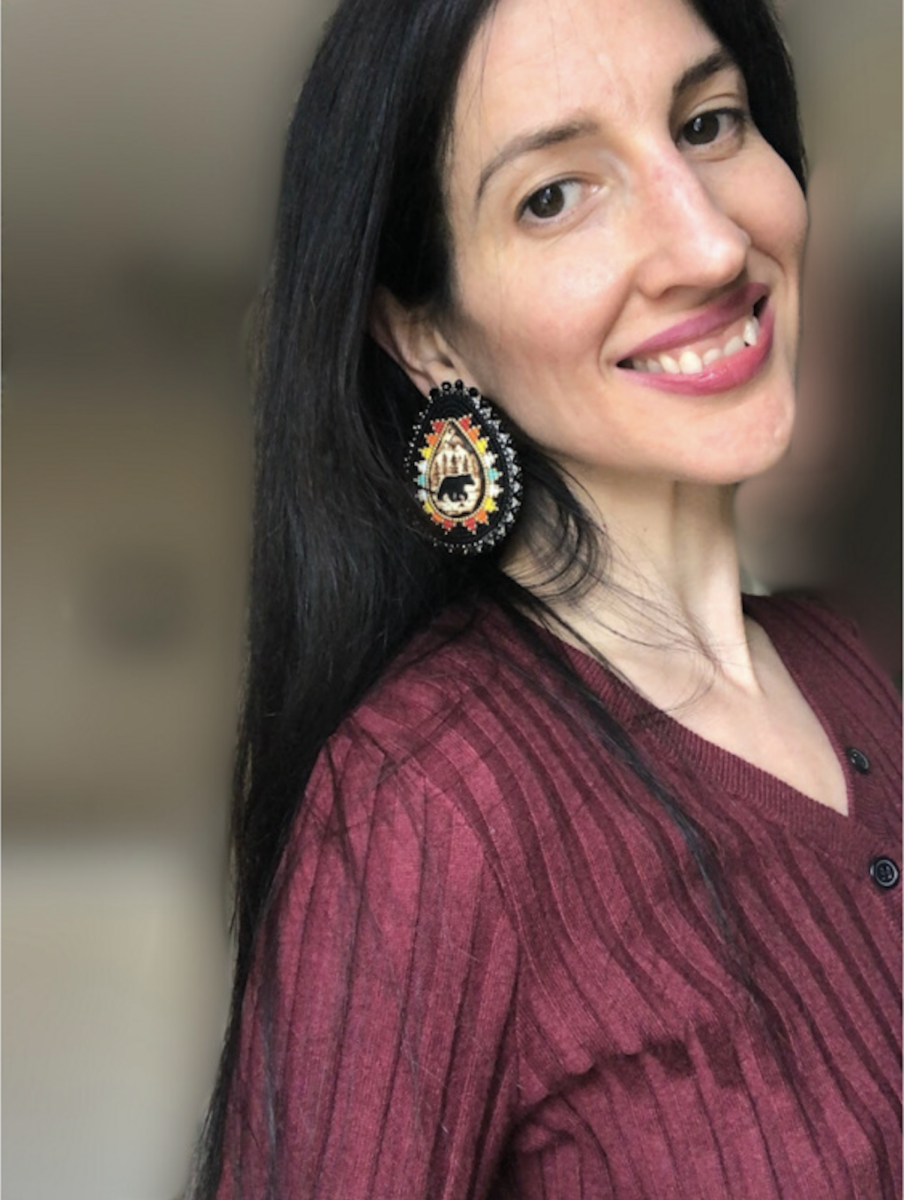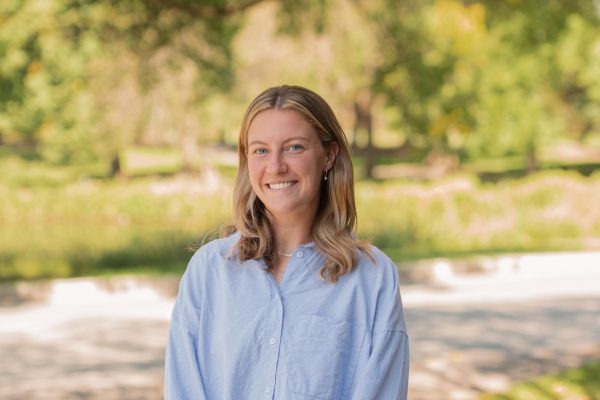Colgate University’s Jewish studies and peace and conflict studies programs co-hosted a lecture given by Alexander Hinton entitled “It Can Happen Here: White Power and the Rising Threat of Genocide in the U.S.” on Wednesday, Nov. 29. The lecture was sponsored by the Lois and Frank Lautenberg Jewish Lecture Fund. Hinton is a distinguished professor of anthropology and the director of the Center for the Study of Genocide and Human Rights at Rutgers University. He is also a United Nations Educational, Scientific and Cultural Organization (UNESCO) Chair on Genocide Prevention. Hinton is the author of several books and essays, one of which was the topic of his lecture. His work focuses on genocide, mass violence, extremism, transitional justice and human rights.
In the afternoon lecture, Hinton discussed the link between white power extremism and American history and its presence in the world today. Hinton centered his talk around six objects: a snake, a flame, a boulder in the road, a four-digit code, a kettle on the stove, a bird and a red brick suit. Each possessed a representative meaning and helped connect Hinton’s discussion of the origins and rise of white power extremism in the United States. As stated in the title of Hinton’s book, “It Can Happen Here,” Hinton claimed violent white power extremism continues to prevail in the U.S. despite many Americans distancing themselves from these notions.
“Such connections between the past and the present are simple,” Hinton said. “This book argues that the danger of genocide and atrocity crimes in the U.S. looms larger than most people realize.”
Hinton claims that it is important to get past this metaphorical “boulder in the road” of not believing this extremism is present to fully understand the context surrounding groups that took to the streets of Charlottesville, Va., in 2017 or stormed the Capitol on Jan. 6, 2021.
The lecture focused on the idea of “reifying consciousness.” This is the paradox where people know far-right extremist groups exist because they have seen their violence, yet they struggle to grasp what these groups represent and what their actions truly mean. Hinton relies on an understanding of history and the social forces that shape people’s subjectivity to acknowledge this question. The speaker concluded by explaining that many people tend to reify others and events, simplifying their essence into a short word or idea, and he also referred to this as “thing-a-fying.”
“This is an example of a moment when we are asked to take all the complexity of being, and shrink it down to one word,” Hinton said.
This simplification is misleading because it prevents people from accurately defining these groups. Hinton suggests that students continue to break away from their basic understandings and engage in discourse with others to combat this.
“To engage in the public sphere requires self-reflection beforehand,” Hinton said. “Look around and understand the context of the people you are talking to. If you bring these different things together, you create the condition to have a dialogue.”
University Studies Professor Noah Shenker, who teaches a class on the Holocaust and film, spoke about what he believed students across Colgate could get from this lecture.
“I thought it was really important for our students to have a conversation about genocides not strictly in places far away but here at home in the United States,” Shenker said. “We must understand this political moment we are in to realize that genocide is not limited to distant historical events but is also a pressing issue right now, right here.”
Hinton also inspired students who attended the lecture to continue engaging in the community to answer these difficult questions. Junior Abby Rosenblatt noted how Hinton’s discussion prompted her to reflect on her own comfort zone of knowledge.
“I think students can play a role by trying to get news and information from sources with a wide range of views,” Rosenblatt said. “It’s really important to have an educated perspective on what’s going on in the world, and to have that requires knowledge of the intricacies of other views. Get out of your comfort zone, always keep an open mind and try to engage in the conversation in some way.”













